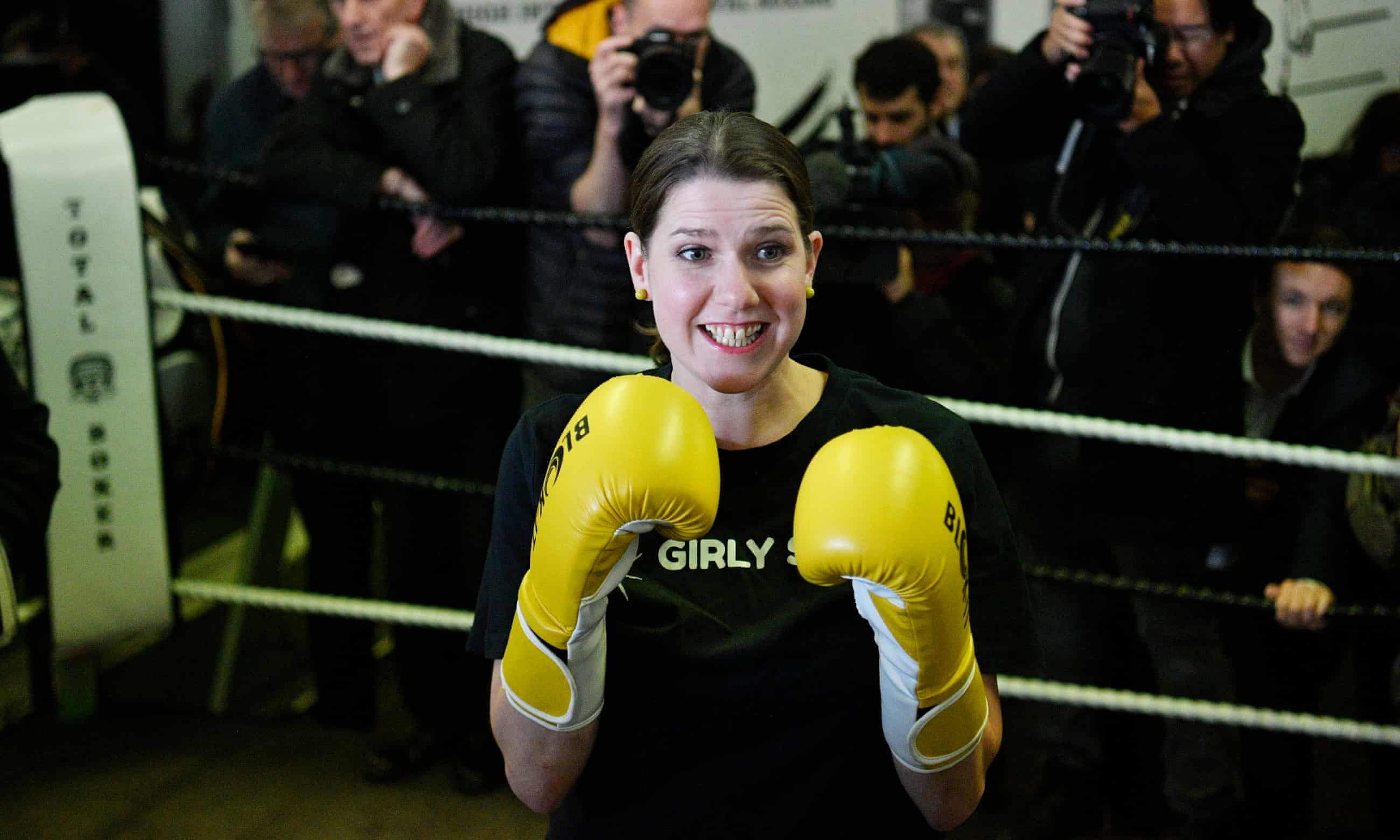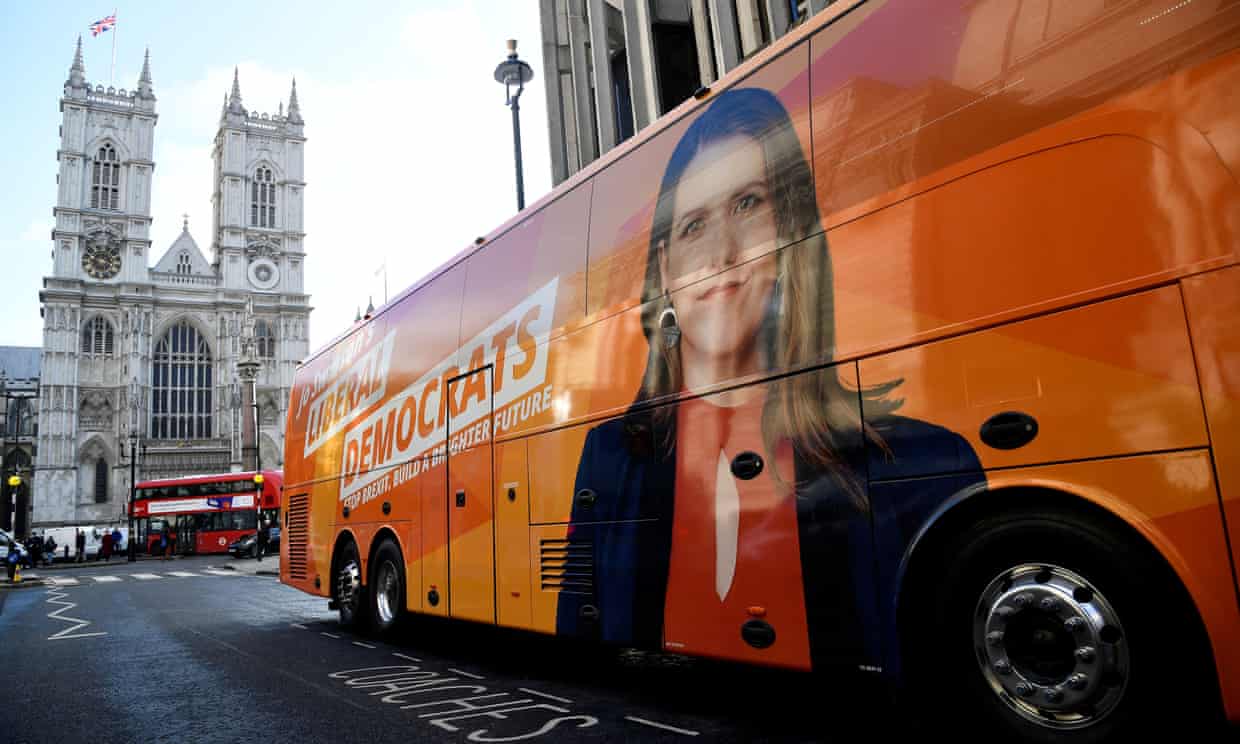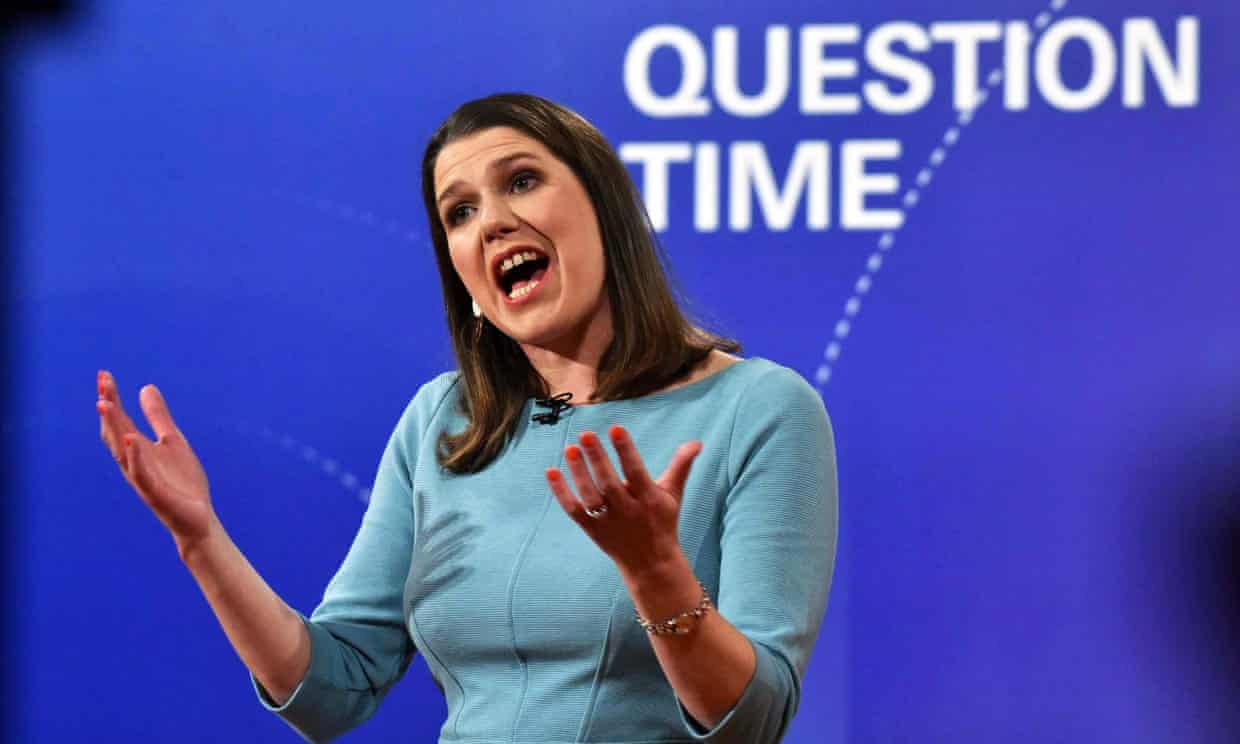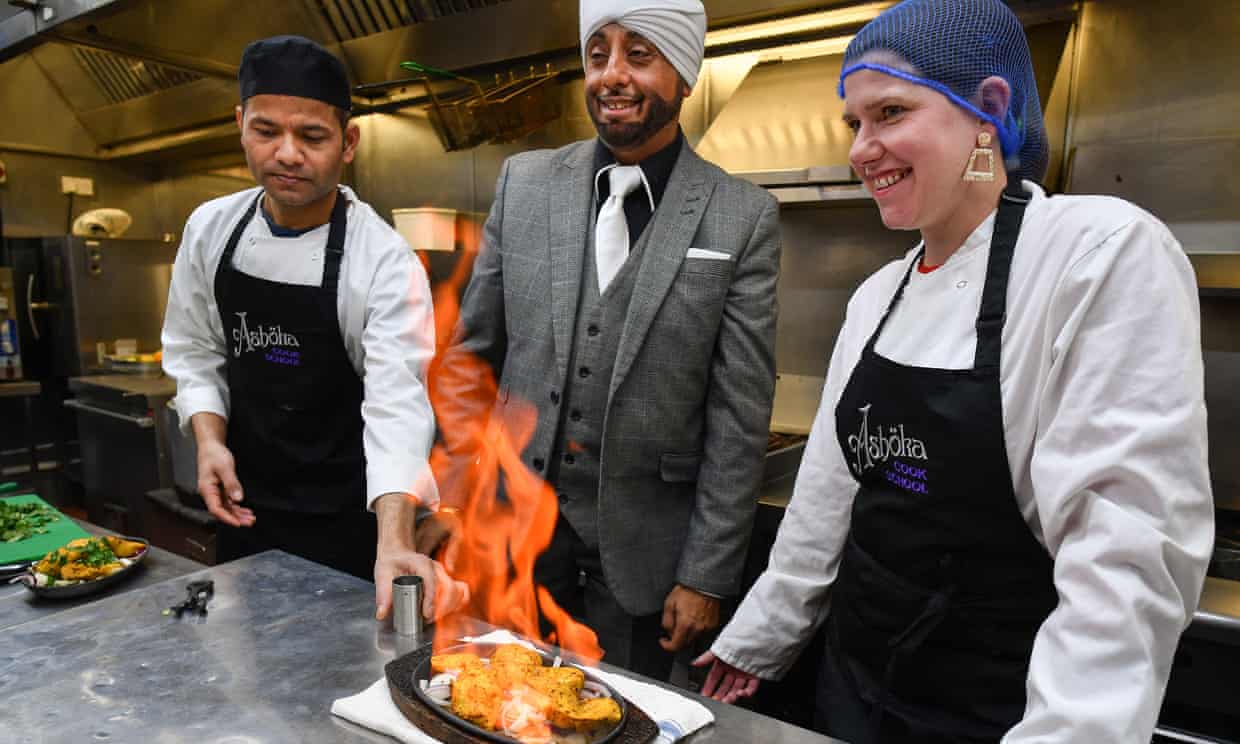
Is Jo Swinson's election campaign punching below its weight?
by Peter WalkerLib Dem leader’s ratings have slipped just three weeks after she aimed straight for No 10
Conducting a series of TV interviews inside the bottle-crammed shopfront of a cider manufacturer in the marginal seat of Cheltenham, Jo Swinson faced the same question repeatedly: does she regret launching her election campaign by shooting straight for No 10?
It is three weeks since the Liberal Democrat leader called herself “a candidate to be prime minister”, but since then her party’s poll numbers have slipped, expectations have been dialled back, and there are hints of an inquest into what went wrong.
But watching the campaign in action, and speaking to candidates, activists and other Lib Dem insiders, a more complex picture emerges, one where the party is the biggest unknown quantity within what is already the most uncertain election in decades.
Given a fair wind, a decent last two weeks of the campaign and – most crucially – enough Labour and Conservative supporters deciding to lend a tactical vote, and the Lib Dems could not just increase their seat tally, but collect MPs in areas where two years ago the party was in a distant third place.
But equally plausible is the scenario where former Tory and Labour supporters who detest Boris Johnson or Jeremy Corbyn still cannot manage the switch – or simply stay at home on election day.
One thing is certain: no one in the Lib Dems is anticipating a result on 12 December anywhere close to the heady predictions of the party conference in September, where passing MPs would routinely speak of winning 80 or 100 seats.
Polls at the time of up to 23% have gradually slipped back to 20% and now 15%, a level which would see the Lib Dems potentially struggle to maintain even the 20 seats with which they ended the last parliament.
This early squeeze has surprised some poll watchers, who say it does not augur well. “I would have expected the Lib Dem vote to rise, and that later in the election campaign the Labour and Tories would set about trying to attack that,” said Robert Hayward, a psephologist and Conservative peer.
What is also clear is that Swinson’s tactics and style of leadership are coming under scrutiny, and that a bad election night will prompt disquiet, especially given the party is, as one source put it, “flush with remainer cash – six-figure donations are not uncommon”.
Some of this money has gone on a pair of bright orange battle buses – one is electric, used for shorter campaign trips – both featuring huge images of the leader and the words: “Jo Swinson’s Liberal Democrats”.

This focus on a figurehead who only took over in July has raised some eyebrows. One source said: “It feels like she’s running a presidential campaign when no one really knows her.”
Adding to the worries are polls indicating that even when voters do see more of Swinson they are unconvinced by her. One survey said her “unfavourable” rating among voters had risen nine percentage points in a week.
Insiders say the notion of Swinson becoming prime minister was not entirely a ruse, with her team being keen fans of Building the Orange Wave, a book chronicling how Canada’s New Democratic party rose from fourth to second place in a single election.
It has, nonetheless, been quietly dropped from party messaging. Speaking to the Guardian in Cheltenham, Swinson accepted the need to now push the message on tactical voting.
“It absolutely makes sense to point out to people that it is the Lib Dems who can stop Boris Johnson winning,” she said. “We’re the ones that are going to take seats from the Conservatives. From the evidence, it doesn’t look like Labour are going to be in a position to do that at all.”
Cheltenham is an example of how the Lib Dems could benefit from what could be the most tactical general election since 1997. When Alex Chalk retained the seat for the Tories in 2017 with a majority of 2,500, Labour took more than 5,000 votes and the Greens nearly 1,000. This time the Greens have pulled out, under the “remain alliance” plan.
Tactical voting could bring more dramatic results in three London seats being contested by prominent new arrivals – ex-Labour MPs Chuka Umunna in Westminster and Luciana Berger in Finchley and Golders Green; and the former Conservative Sam Gyimah in Kensington.
All have a feasible, if still uphill, chance of winning, despite the Lib Dems coming a distant third in 2017, based on a pitch to disaffected remain-minded Conservative and Labour votes that their new party is the best way to scupper a Johnson majority.
The Lib Dems are even throwing resources into places such as Esher and Walton, the Surrey commuter-belt constituency held by the foreign secretary, Dominic Raab, with a 23,000 majority.
One potential hiccup in harvesting anti-Brexit votes has been Swinson’s decision to harden her party’s remain stance with the pledge to unilaterally cancel Brexit if the Lib Dems somehow win an absolute majority in parliament.
The plan was unveiled shortly before the party’s conference and was then, some Lib Dems complain, “bounced through” by the new leadership despite members’ reservations.
Intended to outflank Labour’s offer of a referendum, it has attracted criticism, not least during Swinson’s bruising half hour last week on the BBC’s Question Time leaders’ event, seen as the nadir of the party campaign so far.

Some Lib Dems, however, insist the issue has not particularly resonated with voters. “Those who do mention it understand that it’s basically a stunt, and we’re not going to win an election,” one Lib Dem candidate said.
The candidate was more vigorous in defending another of Swinson’s key decisions – to insist she will never support Johnson or Corbyn in government, and personally attack both leaders as unfit for office.
“I get so many Labour voters saying: ‘I’ll vote for you, but you’ve got to promise not to go into coalition with the Tories again,’” the candidate said. “And you get Tory voters saying the same about Corbyn. If we want the tactical votes we have to be absolutely clear on this.”
Others are less sure. One source said: “The rule always is that the Lib Dems do well when Labour do well. But if you forget who your enemy is, and spend too much time machine-gunning Corbyn, does that get you many more votes?”
One thing all Lib Dems agree on is the apparent effectiveness of the party’s canvassing and ground campaign efforts. Arriving in a Cheltenham suburb in the rainy twilight on another leg of her trip this week, Swinson’s bus was greeted by well over 100 cheering supporters, surprising even her team.

Amid so many competing factors, it is hugely difficult to gauge how the Lib Dems will fare on election day.
The election guru John Curtice said national polling might not be the only factor: “We might discover that the Lib Dem vote becomes somewhat more geographically concentrated than it was in 2017, and therefore their ability to convert votes into seats is rather better than you might expect.”
Either way, the aftermath will see considerable focus on Swinson’s role, some fair, some less so – in one TV interview in Cheltenham she was asked how she combined her role as a party leader with being a parent, an issue not yet put to Johnson.
It will, of course, intensify if 12 December goes badly. “If she doesn’t get more than the 20 seats they had before, and lose all the defectors, there will be questions asked – including from donors,” one source said. “They might want to know why, when they’ve written six-figure cheques, they end up with only a couple of percent more than Tim Farron managed.”